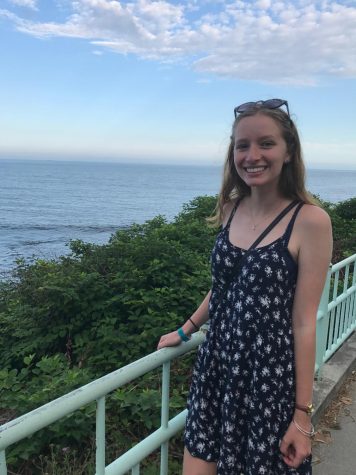Back when Adelaide Steedley was a Grady student in 1981, she noticed the growing disparity between different races inside and outside of school.
Thirty-five years later, the Grady alum has joined the growing campaign to end racism by making a new documentary. The project, currently called “Unfinished Business,’’ compares the history and current state of racism in the United States to South Africa.
After moving to South Africa in 2011, Steedley began comparing the racism she perceived in the U.S. to racism in her new home. To combat the stigma associated with movements such as Black Lives Matter, while also trying to figure out why racism still exists, Steedley decided to create a documentary examining the centuries’ old issue.
“Two South African colleagues and I became very concerned with how racism is dealt with,” Steedley said. “People make racist comments everywhere, all around the world. We want to highlight the difference in the racism struggle now, compare and contrast locations and time periods, and inspire young people who are going to speak out against this issue.”
Steedley’s interest in the effect of racism in South Africa began during her years at Grady.
“We all respected the fact that when we went off the Grady campus, we all had very different lives, either economically or socially,” Steedley said. “My friends were black, and while we were regular teenagers at school, the world itself treated us very differently. But when we got back to class and the lunchroom and the football games, I was able to hear what my classmates had gone through over the weekend.”
A turning point for Steedley came when she met Selby Semela, a leader of the Soweto Uprising in South Africa, in 2008. The uprising occurred in response to 1976 legislation requiring Afrikaans, a language native to Dutch South Africans, to be the basis of instruction in schools.
The uprising was the beginning of the end of Apartheid in South Africa. Apartheid, the period of white superiority in South Africa, eventually ended in 1991, after 50 years.
After hearing how Semela stepped in to lead the young adults’ revolt against the oppressive white rule, Steedley realized she needed to tell his story.
“Selby is one of the most humble and apolitical people I know, but he just stepped in to lead the demonstration,” Steedley said. “He said, ‘They’re getting into my head when they start trying to teach me how to speak a different language.’ Documenting his story was what I knew I wanted to do.”
Since part of the documentary is focusing on racism’s roots, Semela, who is working on the project with Steedley, looked into its complicated history to understand how and why it is so different around the world.
“I think it was very clear who the enemy was during the Apartheid Era,” Semela said. “Racism wasn’t just allowed, it was legislated. In the United States, it can be a little more confusing and undercover. The similarity is that black people are killed in both places, still today, simply because they’re black.”
Today, there is variation in how racism is dealt with around the world. As a part of planning the documentary, Steedley spent time observing the societal differences in Atlanta and South Africa.
“South Africa has a deeper respect for the damage that racism can do,” Steedley said. “There’s a place you can go where you can sue somebody for having said something to you that was dehumanizing.’’
Steedley said there’s more understanding and compassion for past victims of racism in South Africa.
“White consciousness in South Africa is much more prevalent,’’ Steedley said. “There’s still denial in the United States about what systemic institutional racism looks like. It’s a more complicated conversation here.’’
Steedley attributes the increased recognition of racism in South Africa to the climactic moment when it was apparent Apartheid needed to come to an end. Roderick Pope, AP U.S. History teacher, thinks the reason the U.S. hasn’t moved on from racism is because the country hasn’t had a pinnacle moment of change, where everyone came together to make a difference.
“I think it’s going to take us time to realize that we all have a human experience and that experience isn’t based on our race,” Pope said. “Segregation was based on the ideas that when you separate people, you can instill fear on each side. Once we completely get rid of those ideals, we’ll be moving in the right direction.”
The documentary, still in the funding and planning phases, does not yet have a final format. The production crew plans to interview Grady and South African students about racism by posing a question, said Adam Forrester, an art professor who is working with Steedley on the documentary.
“What is the unfinished business which prevents empathy and acceptance of another’s reality?” Forrester said. “There’s this notion in all of us that racism should and could be over, but it isn’t. We want to get into the specifics of why it isn’t and what can be done to end it.”
As for the future of the documentary, and of racism, Steedley hopes the next few years will reflect the work she, her colleagues and her counterparts are putting into the fight to end bigotry and racism.
“I’d love to be able to know that people could come into a room, give their perspective, and people value it,” Steedley said.







